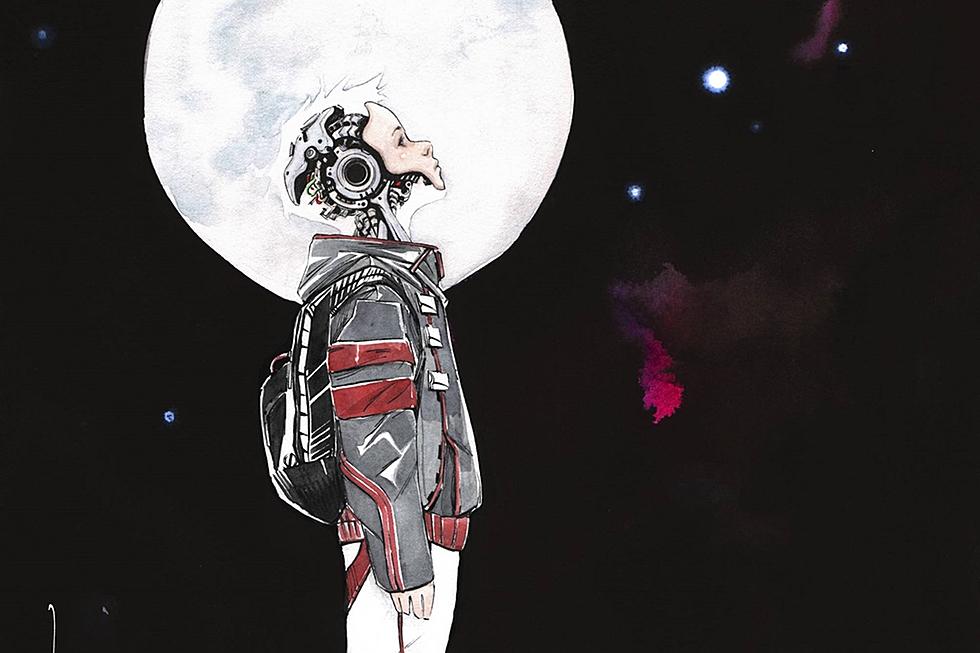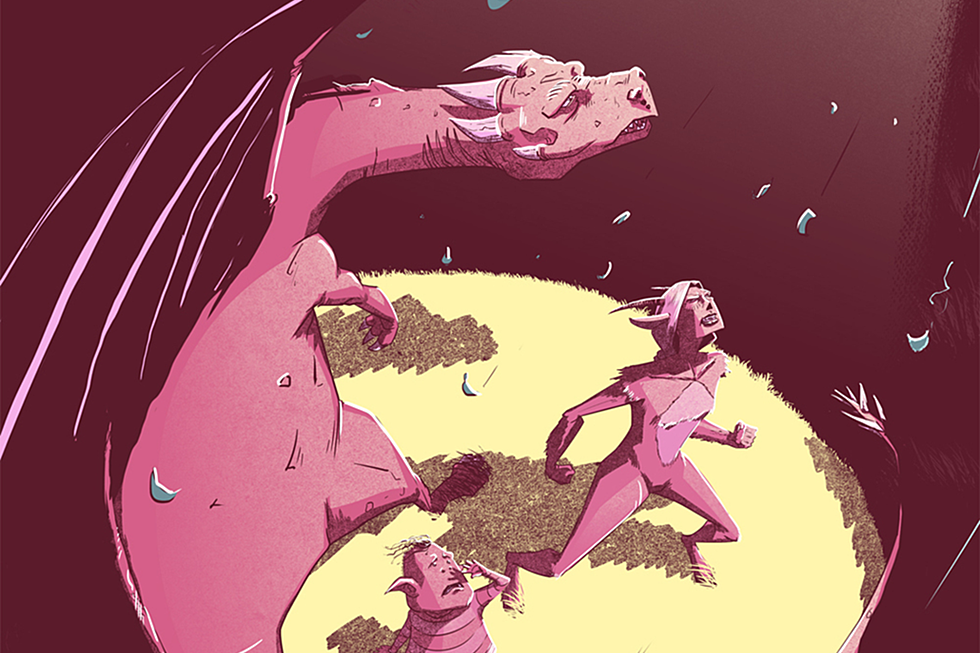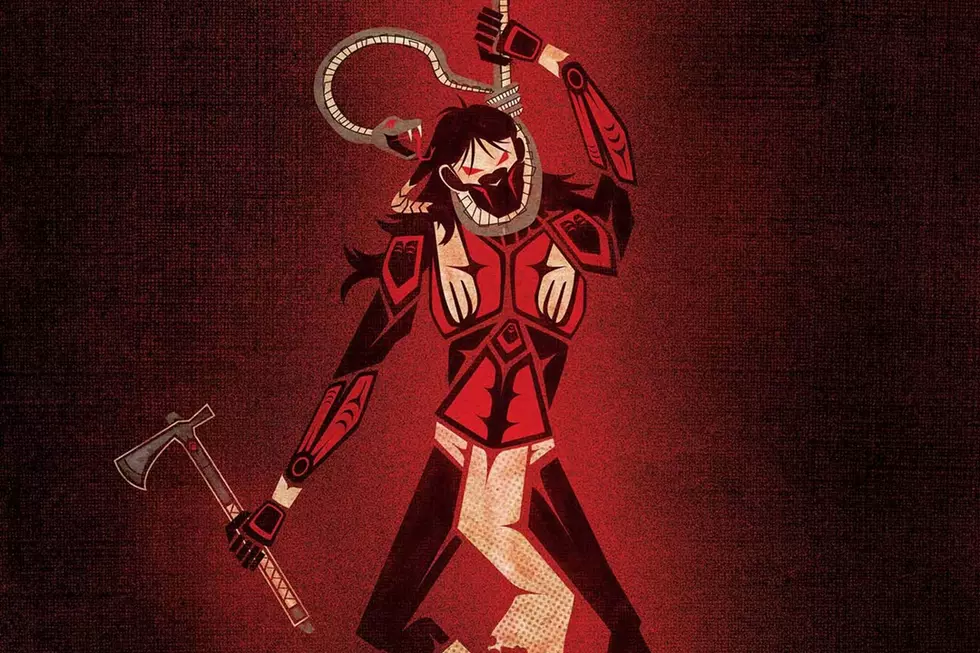James Leask
![The Cats Deserve Their Fame: Ananth Hirsh and Yuko Ota Dive Back Into ‘Johnny Wander’ [Interview]](http://townsquare.media/site/622/files/2017/03/JWOMNI-COVER-ONI-PRESS-EDITION-4x6-COMP-CA-FEATURED-IMAGE.jpg?w=980&q=75)
The Cats Deserve Their Fame: Ananth Hirsh and Yuko Ota Dive Back Into ‘Johnny Wander’ [Interview]
Ahead of the Johnny Wander omnibus release, ComicsAlliance talked to Hirsh and Ota about what it was like to revisit their old work, how they set boundaries for their comic, the Kickstarter process and if they see themselves returning to autobiographical comics in the vein of the omnibus.

A Robot Boy and his Robot Dog: Should You Be Reading ‘Descender’?
With Should I Be Reading… ?, ComicsAlliance hopes to offer you a guide to some of the best original ongoing comics being published today, and this week we’re focusing on some of the very best science-fiction in comics. Discover the world of tomorrow with Sci-FI Week!
In the past several years, Image Comics has been turning heads with its growing array of ambitious science fiction comics like Saga, Bitch Planet, and Descender, which has been quietly building its detailed, enveloping world centred around a young robot looking for his family, and those looking for him.

Paul Allor And Louie Joyce Bring ‘Past the Last Mountain’ to Kickstarter
“A dragon, a faun and a young troll boy are on the run from the United States government.” That’s how Paul Allor describes the premise of Past the Last Mountain, the comic book he created with Imaginary Drugs artist Louie Joyce. After being initially published on Comixology this year by Comics Experience, Allor and Joyce are now funding a deluxe print edition via Kickstarter.

Slurs, Caricatures and Erasure: The State of Marvel Comics’ Treatment of Indigenous Characters
With the recent beginning of Ta-Nehisi Coates and Brian Stelfreeze’s Black Panther, and the ongoing success of non-white characters like Kamala Khan, Miles Morales and Sam Wilson at Marvel, the publisher is eager to present itself as a strong supporter of diversity. In fact, Ms. Marvel editor Sana Amanat appeared on Late Night with Seth Meyers in January and met with President Barack Obama at a White House event in March in her role as the company's director of content and character development.
Ironically, at the same time, I was considering dropping all the publisher’s books from my pull list entirely over the publisher’s current line-wide problems in the representation of indigenous people.
![‘Voracious’ Creators Markisan Naso and Jason Muhr on Dinosaur Sandwiches [Interview]](http://townsquare.media/site/622/files/2016/05/voracious-feat.jpg?w=980&q=75)
‘Voracious’ Creators Markisan Naso and Jason Muhr on Dinosaur Sandwiches [Interview]
In February, Action Lab Entertainment's Voracious debuted under the tagline, "Top Chef meets Jurassic Park." Needless to say, we were intrigued.
The series tells the story of chef Nate Willner revitalizing his career by using time travel technology he inherited from his uncle to cook and serve dinosaur meat in the present day, and it's been a success both for Action Lab and for indigenous representation in comics. ComicsAlliance talked with writer Markisan Naso and artist Jason Muhr about the book's influences, the research involved, and handling another culture's representation with care.
![‘Daredevil’ #1 Returns Matt Murdock to the Grit of Hell’s Kitchen [Review]](http://townsquare.media/site/622/files/2015/12/Daredevil_1_feat.jpg?w=980&q=75)
‘Daredevil’ #1 Returns Matt Murdock to the Grit of Hell’s Kitchen [Review]
This week saw the release of Daredevil #1, one of the latest launches in Marvel’s All New, All Different lineup. Given the critical success of the previous volume, which featured a “lighter” take on Matt Murdock by Mark Waid, Chris Samnee, Javier Rodriguez, Joe Caramagna, et al, the new series, written by Charles Soule, with art by Ron Garney and Matt Milla, and letters by Clayton Cowles, came with high expectations.

The Good Man Narrative: History and Representation in ‘Captive of Friendly Cove’
Captive of Friendly Cove by Rebecca Goldfield and Mike Short, published by Fulcrum, is a graphic novel based on the true story of British sailor John Jewitt, who lived as a captive of the Mowachaht people of Vancouver Island for three years at the start of the 19th century. The comic is largely inspired by, and draws upon, Jewitt's own memoirs of his captivity.
ComicsAlliance’s James Leask and J. A. Micheline sat down for an in-depth discussion of the book's themes, its intended audience, its treatment of history, and its representation of First Nations people. Their conversation begins with a discussion of context, and the assumptions made by the comic.
![And Then We Make His Night Worse: Ryan K. Lindsay on ‘Negative Space’ [Interview]](http://townsquare.media/site/622/files/2015/09/negativespace1.jpg?w=980&q=75)
And Then We Make His Night Worse: Ryan K. Lindsay on ‘Negative Space’ [Interview]
This week saw the release of the second issue of Negative Space, the sci-fi horror comic from Dark Horse, which features art by Owen Gieni (Manifest Destiny, Shutter) and story by Ryan K. Lindsay (Headspace, CMYK). The book centers on Guy Harris, a suicidally depressed man who discovers that his own dark emotions are being harvested by a secret corporation. ComicsAlliance spoke with Lindsay about what inspired the book, how he layers on the horror, and why he chose to step outside of his own experiences to write Guy.

Marvel Announces ‘Red Wolf’ Series by Edmondson, Talajic and Veregge
As Marvel Comics’ Secret Wars event continues, the publisher is still busy announcing titles for the All New, All Different Marvel status quo that follows it. Today, Marvel revealed another of those books, Red Wolf, written by Nathan Edmondson, with art by Dalibor Talajić, and covers and design work by Jeffrey Veregge.

Keep Living the Stories: ‘Moonshot: The Indigenous Comics Collection’ Celebrates Being Aboriginal
In 2014, Toronto publisher Alternate History Comics launched a Kickstarter for an anthology of indigenous comics, with the goal of “showcasing the rich heritage and identity of indigenous storytelling.” The resulting anthology, Moonshot: The Indigenous Comics Collection, Volume 1, is now available, and it presents a unique and much needed look into aboriginal storytelling in multiple aspects.
It’s easy, as an indigenous person, to slip into what sounds like hyperbole when discussing a project like this. This is one of the most important comics of the year! But it’s easy for the same reasons that make it hard for any statement to actually be that hyperbolic; the blunt reality of comics as a business and popular medium is that there really aren’t that many aboriginal stories being told, and what few aboriginal characters there are usually employ crude stereotypes. These stereotypes aren’t continued out of any real sense of hatred, but out of the almost complete lack of aboriginal people involved in the telling of these stories.
